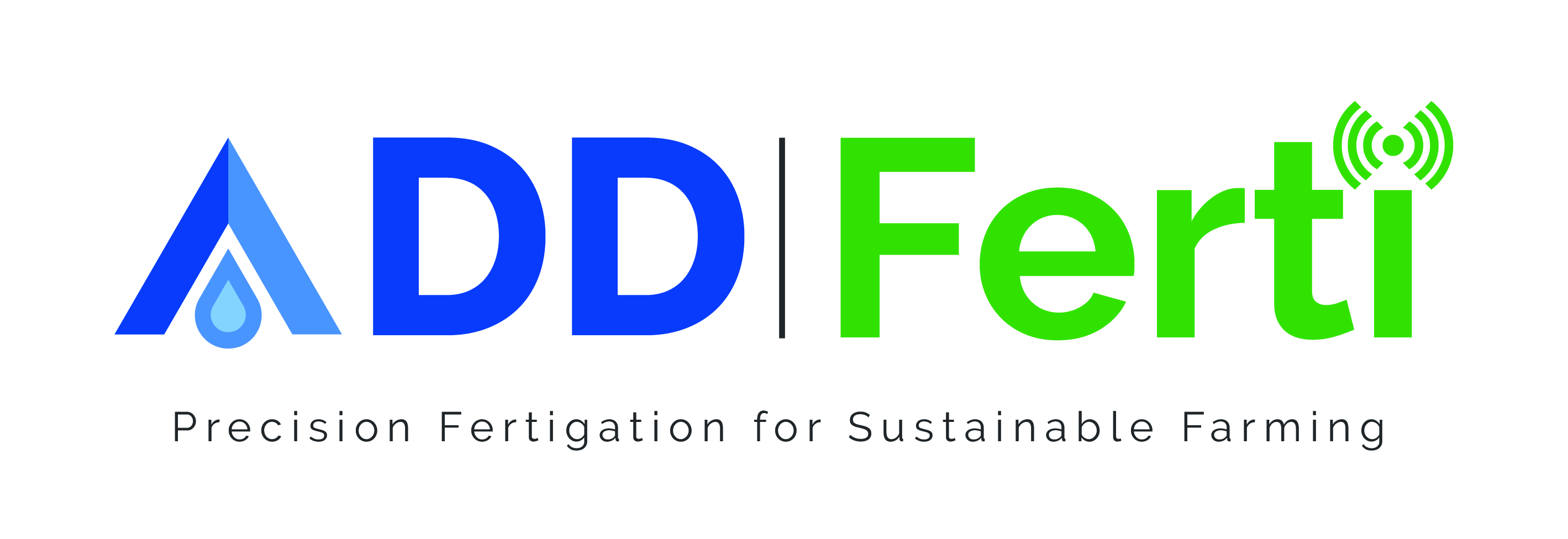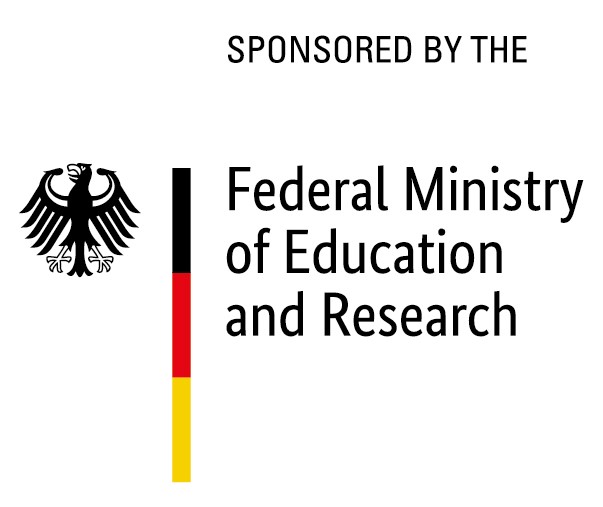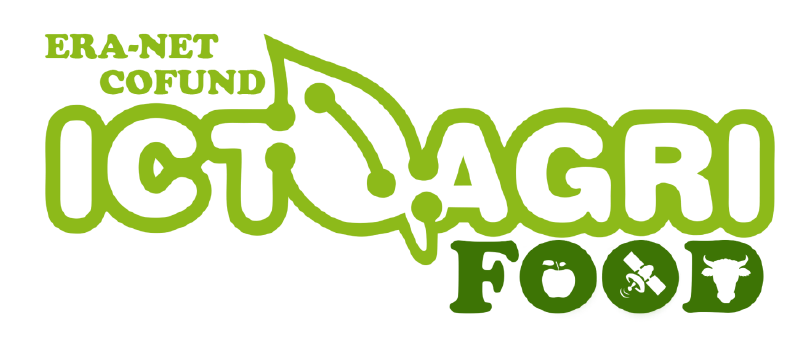
Objectives
The following are the objectives of ADDFerti:
- Collect data on the affecting factors in the system, including soil, crop, and topography attributes (WP1).
- Develop recommendations for VRF of N, P and K and water use for irrigation using advanced machine learning, data fusion, geostatistics and decision support tools (WP2).
- Develop a fully-automated ICT platform for data transfer, data storage, data processing and management, accounting for data stewardship and data standardisation (WP3).
- Validate the fully-automated ICT platform for VRFI in commercial fields (WPs 4 & 5).
- Apply cutting edge life cycle analysis (LCA) and socio-economic tools to evaluate the environmental and economic performance of the developed solution, as compared to the conventional solution (WP6).
- To communicate with key stakeholder groups to promote adoption of the combined solution (WP7).
Work packages
The work plan is divided into 8 WPs, illustrated in the following figure.
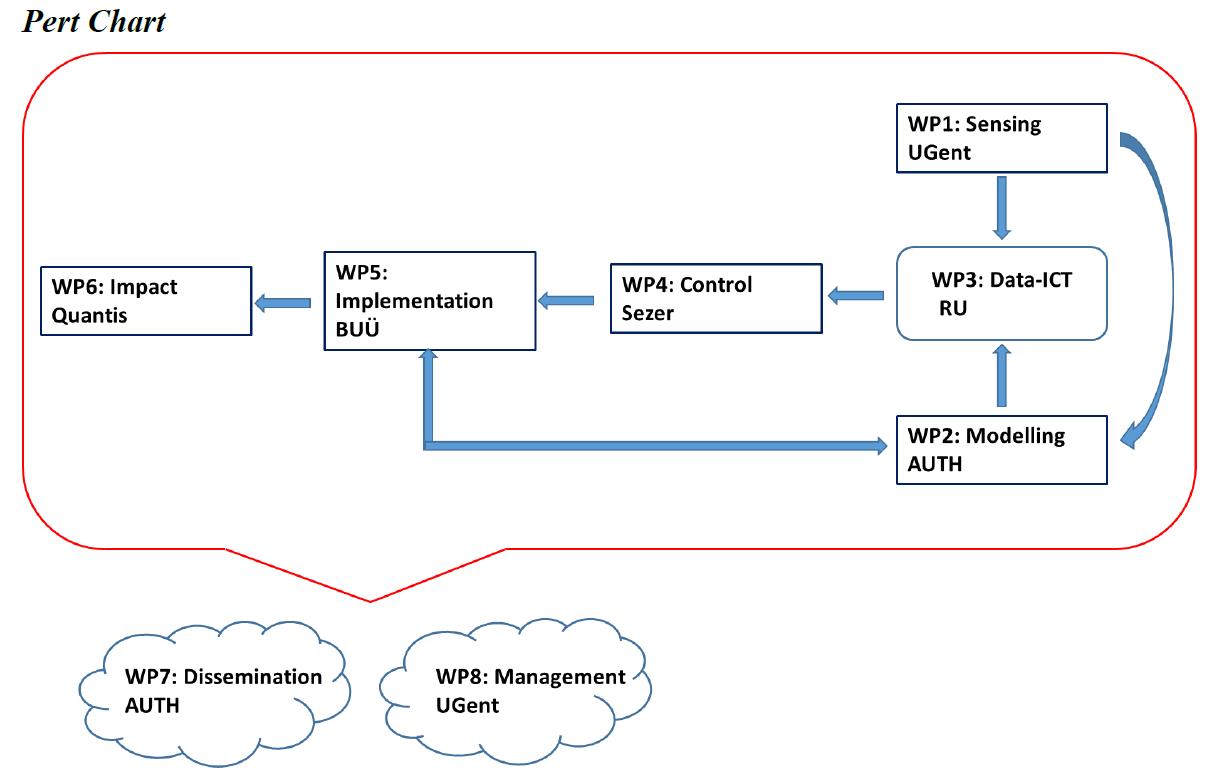 WP1 – Sensing: This WP is linked with objective 1 – data collection.
WP1 – Sensing: This WP is linked with objective 1 – data collection.
Task 1.1 Soil sensing
Task 1.2 Crop sensing
WP2 – Modelling: This WP is linked with objective 2 – on modelling and development of recommendations.
Task 2.1 Prediction and mapping of soil attributes
Task 2.2 MZs and recommendations
WP3
– ICT and data management: This WP is linked with Objective 3 – Development of a fully automated ICT platform.
Task 3.1 Systems architecture and implementation
Task 3.2 Interfaces definition and implementation
Task 3.3 Data fusion and decision-based system (DSS)
Task 3.4 Testing and integration.
WP4
– Control: This WP is linked with Objective 4 – Validation of the fully-automated system for VRFI.
Task 4.1 Mechanic and hydraulic modification of HIS
Task 4.2 Design of VRFI control system
Task 4.3 Integration and calibration of VRF and HIS
WP 5
– Implementation: This WP is linked with Objective 4 – Validation of the fully-automated system for VRFI.
Task 5.1 Field implementation
Task 5.2 Demonstration and evaluation
WP 6
– Impact evaluation: This WP is linked with Objective 5 – impact evaluation.
Task 6.1 Environmental impact
Task 6.2 Socio-economic evaluation
WP 7
– Dissemination, exploitation and communication: This WP is linked with Objective 6, dissemination and demonstration.
Task 7.1 Development of communication and dissemination tools
Task 7.2 Business plan
WP 8 – Project management
The following Gantt Chart is illustrating the milestones and work package relations.
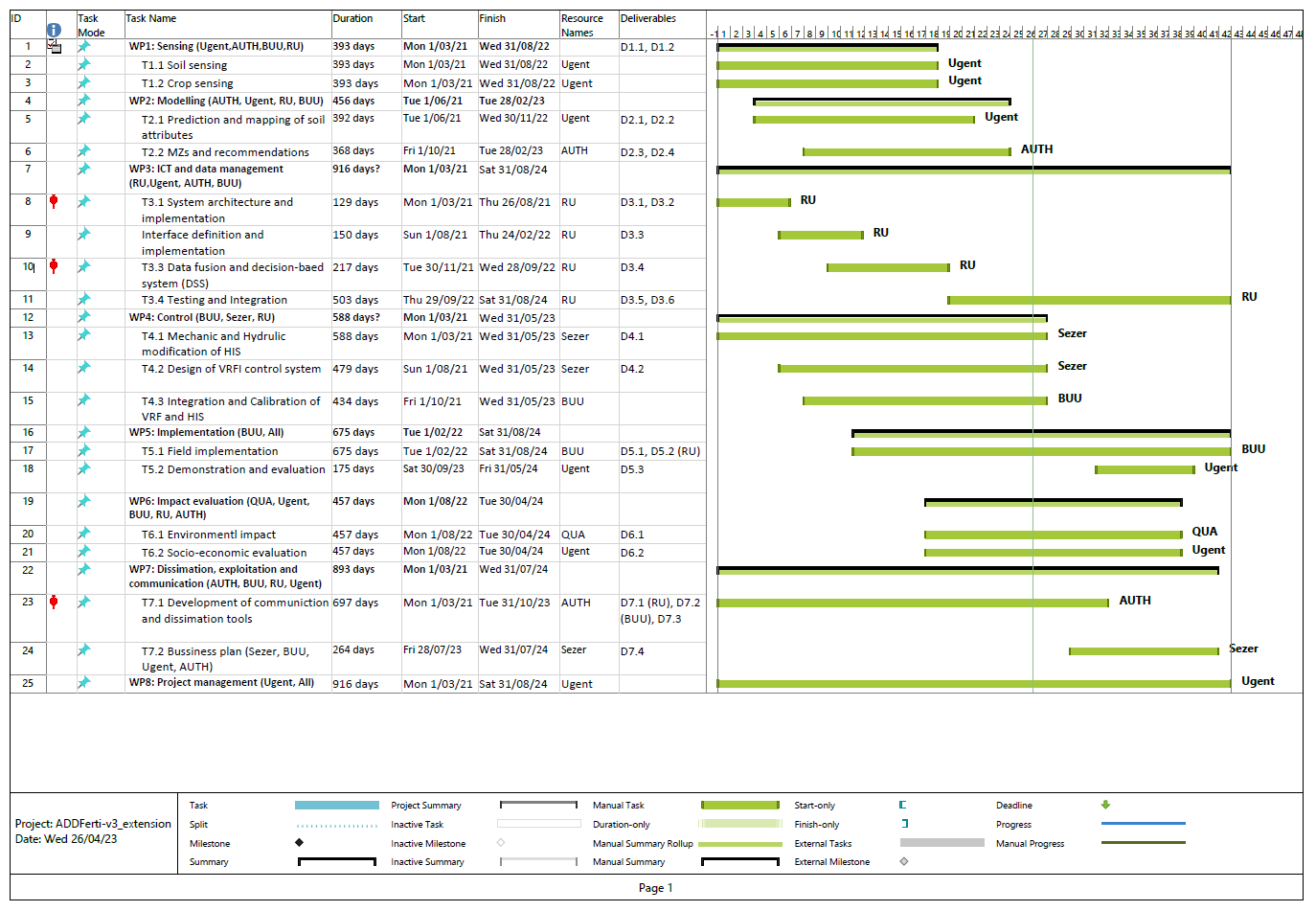
News

2024 Annual Meeting: Gent
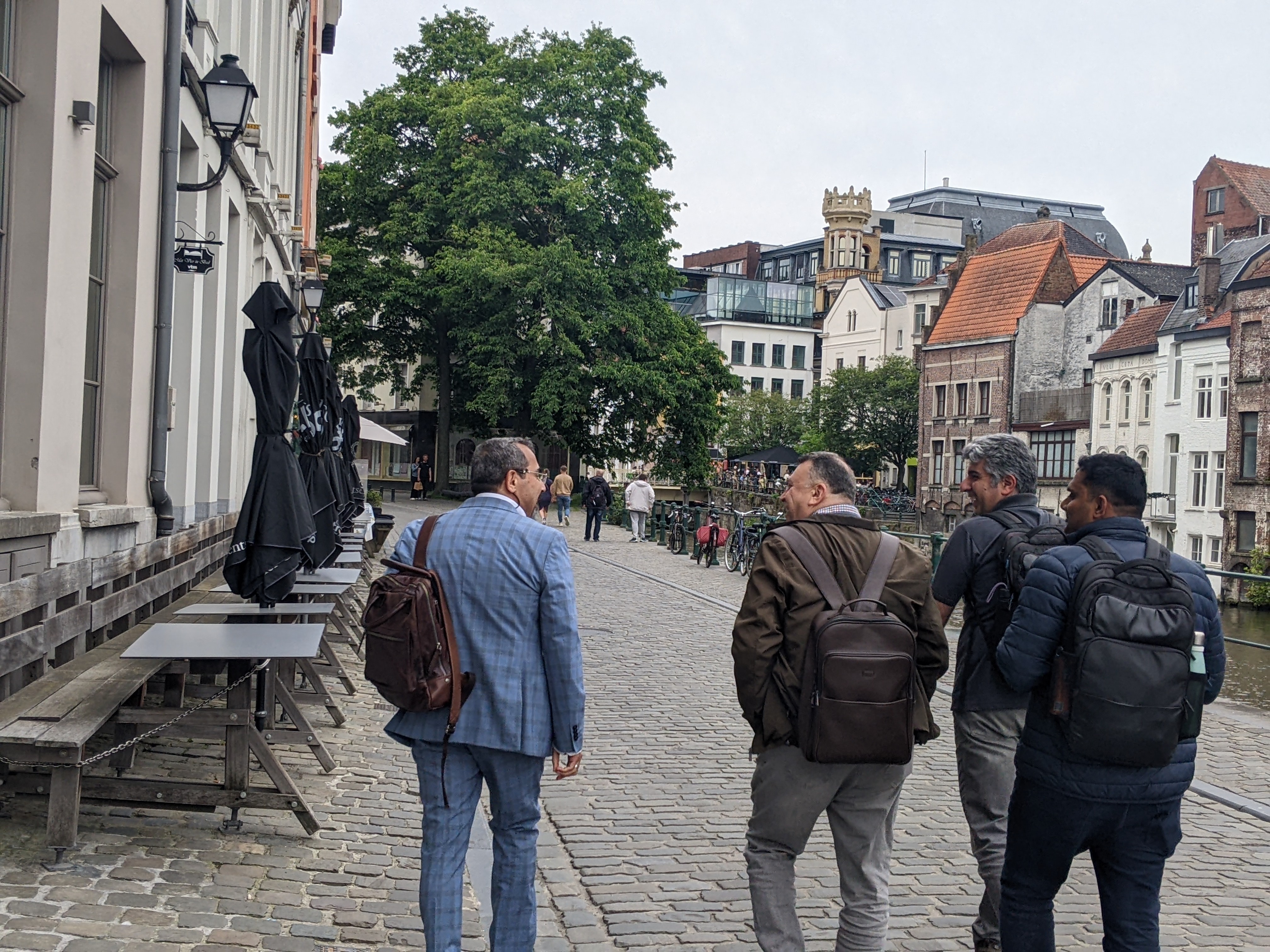
At the 13. and 14 of June the 4th annual meeting of our project was successfully held in Ghent. Representatives from Uni Gent, Uni Bursa, and Uni Rostock attended in person, while participants from AUTH, Sezer, and Quantis joined online. The meeting focused on reviewing the project's outcomes and planning future dissemination efforts, including upcoming publications.
2023 Annual Meeting: Rostock
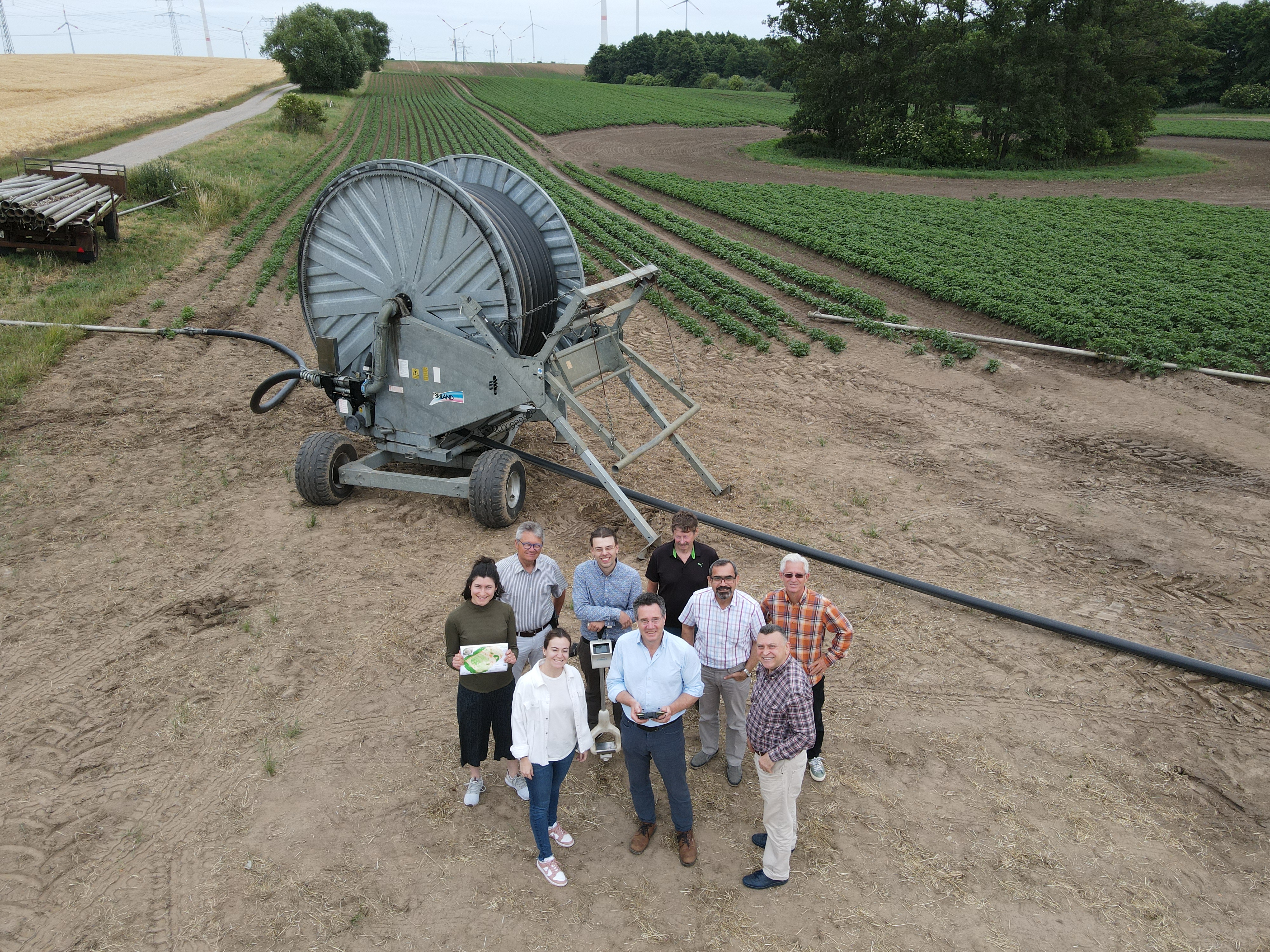
Between 22. and 23. June 2023 the annual project meeting was held. Hosts where the project partners of the Rostock University. Each partner presented their progress, results and future actions regarding the project. Discussion points where: the inclusion of machine learning for irrigation forecast, the details of developing the hose reel irrigation machine and measuring the ecological impact of applied variable rate fertigation. On the second day the partner farm KSG Agrargesellschaft mbH Kassow was visited, followed by an excursion to the nearby test field.
2022 Annual Meeting: Bursa
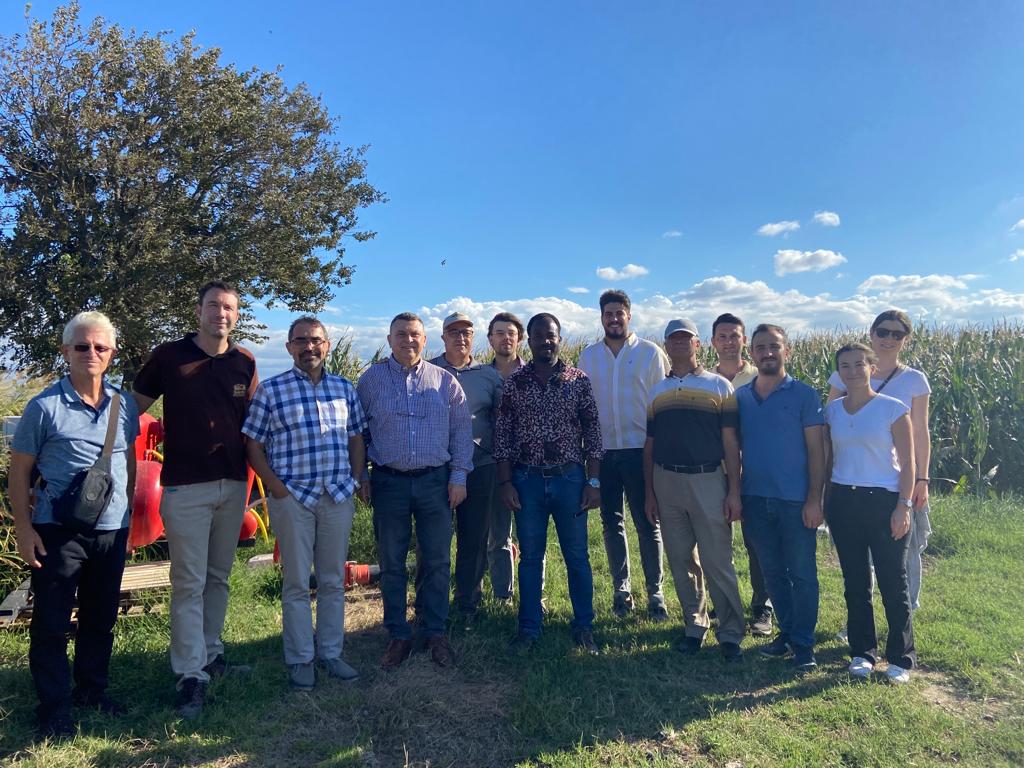
Between 5. and 7. September the annual project meeting was held in Bursa. Hosts where the turkish partners at the Bursa Uludag University. Each partner presented their progress, results and future actions regarding the project. Especially the design of the Hose Reel Irrigation Machine was productively discussed. On the second day the Sezer plant was visited, followed by an excursion to the nearby test field. Orhan, the turkish farmer managing the field was also present and gave practical insights into his cultivation practices and real world requirements for the future VRF system.
2021 Kick-off meeting
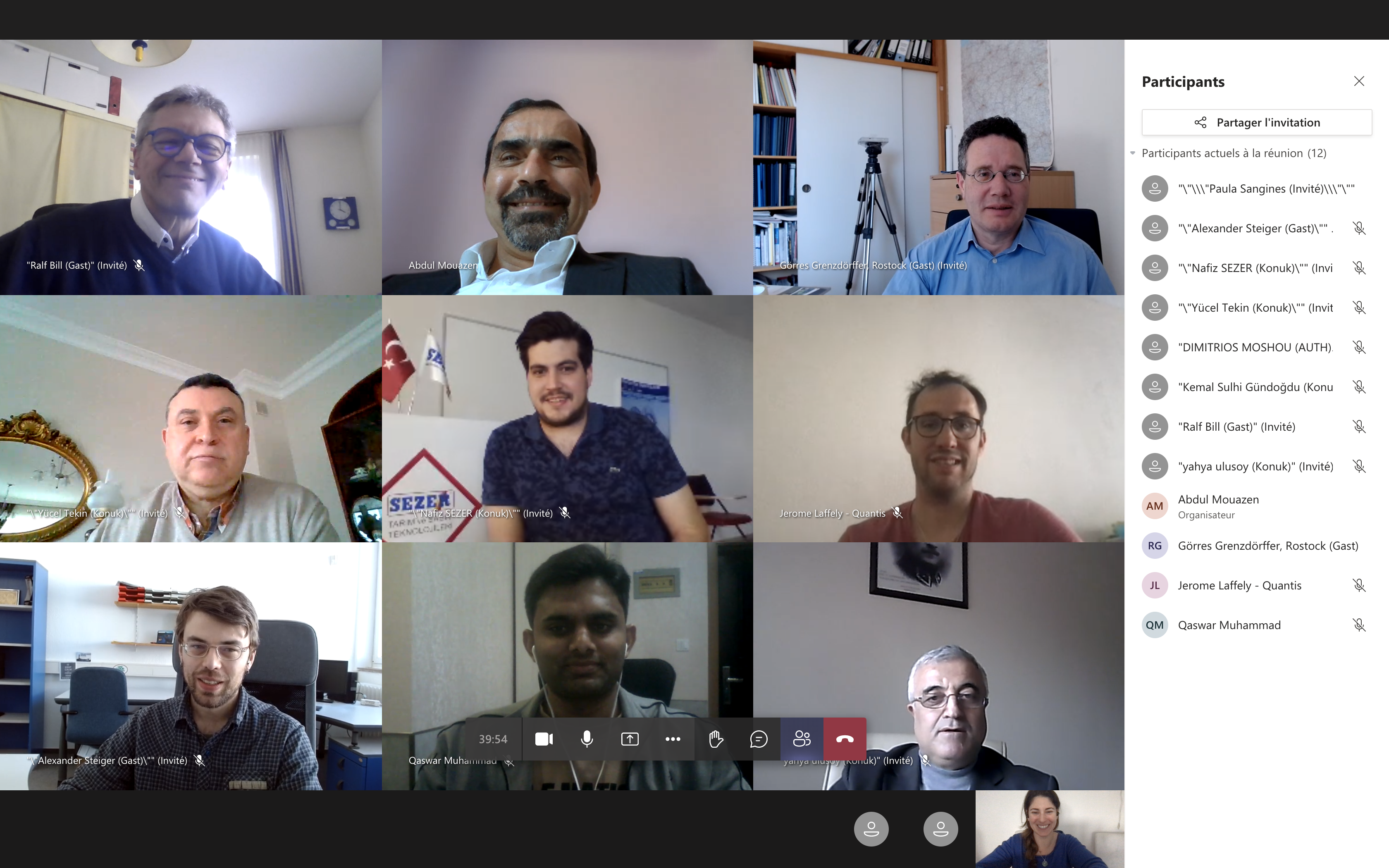
On March 30, the kick-off meeting for the research project “A Data-Driven Platform for Site-Specific Fertigation” took place online. The project, led by the Belgian partner Abdul Mouazen, University of Ghent, is about combined fertilization and irrigation. Together with other partners from Switzerland, Greece and Turkey, an irrigation system is to be coupled with a fertilizer system in order to apply both fertilizer and water on a site-specific basis. This is to be tested on three farms, including in Kassow near Rostock. The Professorship for Geodesy and Geoinformatics from University Rostock is responsible for researching, implementing and operating the data-driven infrastructure as a central component. The project has a term of three years.
